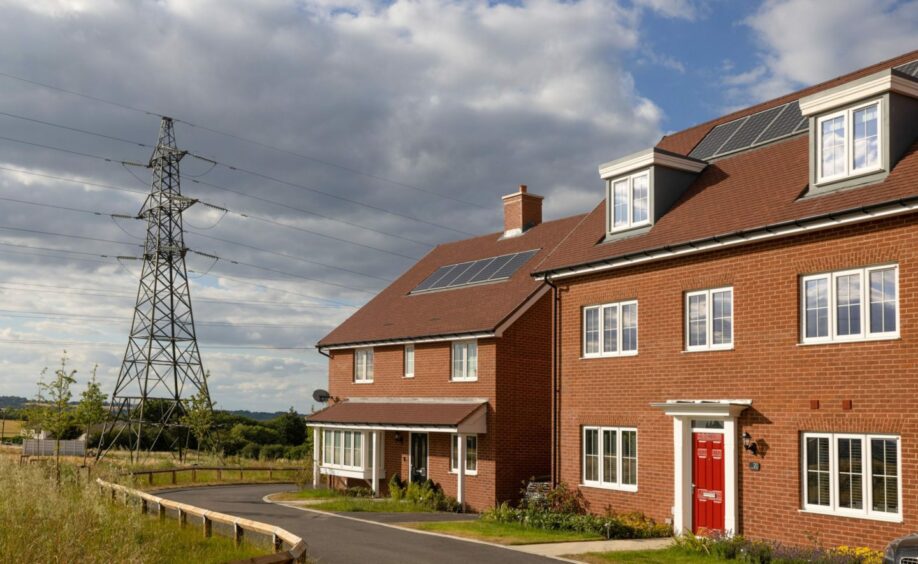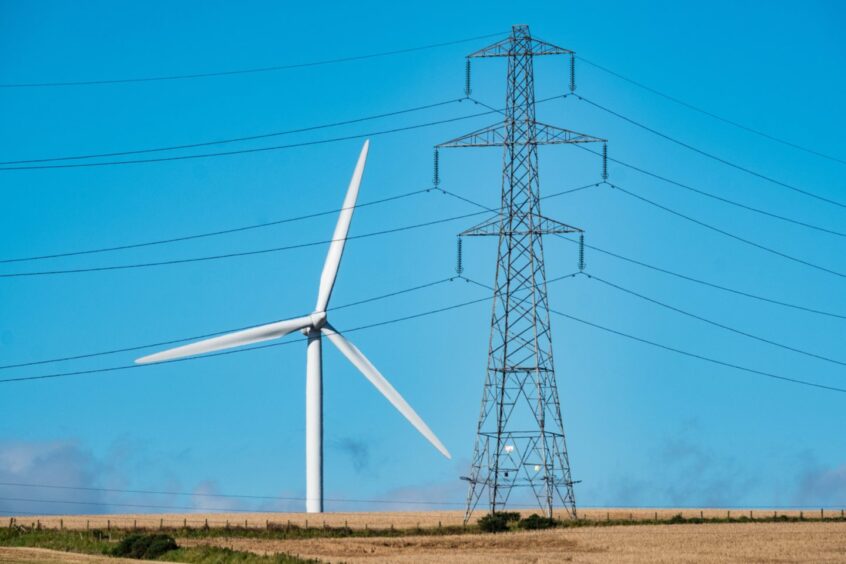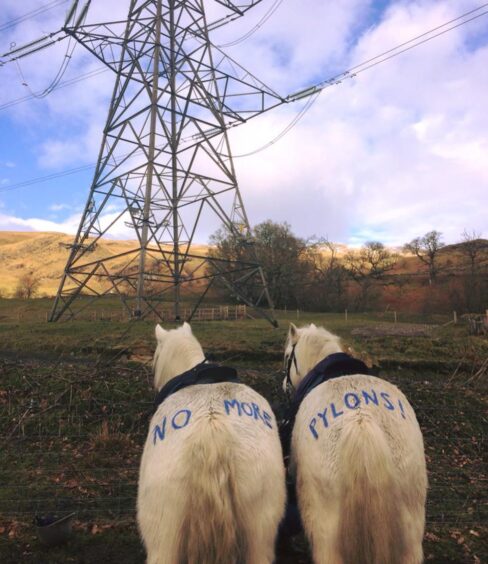 © Bloomberg
© Bloomberg SSEN Transmission has committed to support the building of more than 1,000 homes for workers across the north of Scotland.
The energy firm aims to deliver 400 homes in the Highlands and a further 400 in Aberdeenshire to deal with housing shortages as the regions ramp up industrial development.
This is part of a £20 billion investment to upgrade the transmission network to support energy security and national net zero ambitions.
SSEN said it plans to “unlock investment” in the development of new-build homes through offering long-term leases
It said this approach has “garnered significant interest from local authorities” and could serve as a model for infrastructure developers across Scotland.
SSEN Transmission will outline its plans at the Housing Challenge Summit in Aviemore on Tuesday where it will launch its new housing strategy.
Rob McDonald, SSEN Transmission’s managing director, said: “Our £20bn investment in the transmission network is the biggest investment programme the north of Scotland has seen in decades – and our ambition to create a housing legacy reflects our determination to make a lasting and positive contribution in the communities hosting our infrastructure.”
SSEN says it will be working with councils, registered social landlords and other housing organisations to deliver the new homes.
It added that further announcements with details of local housing projects in different council areas will be made in the coming months.
SSEN claims that this model could be a “game changer” as firms can drive housing development in the communities where their projects are based.
The Scottish Government’s Housing Minister, Paul McLennan, commented: “These homes will initially be for workers upgrading the local energy infrastructure to support Scotland’s net-zero targets and will support a longer-term legacy across the region.
“We will work with SSEN Transmission and other partners to ensure that the right homes are delivered in the right place, to benefit local communities for generations to come.”
He added that government was aiming to see around 11,000 new homes affordable homes built in rural and island communities in Scotland.
“Good quality housing is essential to attract and retain people in our communities. We remain focused on delivering 110,000 affordable homes across Scotland by 2032, with at least 70% for social rent and at least 10% in our rural and island communities supported by our rural and island housing action plan,” he said.
Local backlash
Despite the potential boost to housing infrastructure as well as £106 million injected into community benefit funds between 2018 and 2022, many rural communities remain resistant to the roll out of net zero technologies.
SSEN Transmission is planning a corridor of giant pylons and substations between Kintore in Aberdeenshire and Tealing in Angus, in order to connect offshore energy to the grid.
This is set to be part of the National Energy System Operator’s (NESO) centralised strategic network plan to reach carbon net zero by 2050.
Andrew Bowie, Scottish Conservative MP for West Aberdeenshire and Kincardine, has co-signed a letter to the Energy Secretary Ed Miliband about the impact pylons can have on local communities and urged that power lines be buried rather than carried overground with significant visual impact on the landscape.
Bowie said: “Studies now show that underground lines will be cheaper to maintain than massive pylons over the longer term. Cost was the main reason for the presumption to use pylons in the first place.
“We want the NESO to spend the next year planning out how it could use underground cables, and undersea where appropriate, without using pylons.
“No doubt there will be physical challenges to that in some areas, but it will be substantially cheaper for the government in the longer term.
“It will also address many of the concerns in my constituency and indeed across Scotland, that the race to net zero will mean an unjust transition for those who would pay the ultimate price for giant pylons being dumped in their garden or field.”
SSEN has been asked for comment on the claims made about its 70-mile, 400kV line.
The highland community group Better Cable Route (Strathpeffer and Contin) has previously campaigned for changes to an SSEN proposal for a transmission line between Spittal and Beauly, set to connect offshore wind projects to the national grid.
Carolyn Lochhead, director of external affairs at the Scottish Federation of Housing Associations, commented: “The housing emergency has hit rural Scotland particularly hard and has exacerbated so many other existing challenges such as depopulation, labour shortages, and underinvestment in rural communities.
“This investment will be vital for communities across the north of Scotland and is a good example of collaborative working to increase the supply of housing.”
Community benefit money set to be announced
From November, organisations throughout SSEN Transmission’s network area will be able to apply for funding from the company’s first community benefit fund, with grants ranging from a minimum of £40,000 up to £500,000.
Groups from across the North of Scotland have been able to submit bids for cash rewards from a fund aimed at supporting communities affected by energy transmission infrastructure since early September.
However, in the past rural communities in Scotland have labelled programmes such as local benefit funds as “insulting pittance” as pylons are set to be erected across their local landscape.



